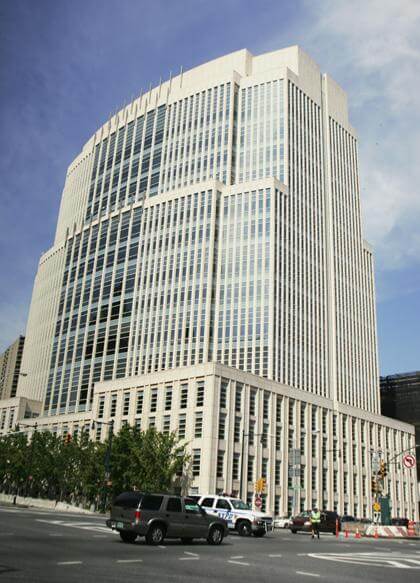By Ivan Pereira
The city is hoping to change the way the courts hire its public defenders, but the Queens County Bar Association said its plan could limit the number of independent lawyers.
The mayor’s Office of the Criminal Justice coordinator issued a request for proposal last month looking for new plans for handling indigent defendants. The city would give lawyers who are members of pro bono groups more chances to serve as counsel, according to the office, which finished taking proposals last week and will be awarding contracts to attorneys in July.
Two weeks ago, the Queens County Bar joined the bar associations from the other boroughs in condemning the plan and it has been talking with the city to find a more fair way of distributing cases.
“We went there and gave our point of view,” Guy Vitacco, president of the Queens County Bar Association, said.
Under current practices defendants who cannot afford their own attorney can seek to have a lawyer through a special bidding process that yields one of two results, according to Jason Post, a spokesman for the mayor’s office. Private organizations are given the first shot at representing the client and if they cannot take the case, an independent public defender would be chosen, according to the state Assigned Counsel Plan, aka 18B.
Approximately 86 percent of those cases are taken by private organizations, such as the Legal Aid Society, and the remaining cases are taken by independent public defenders who are paid by the city, the mayor’s office said.
The courts usually do not appoint the private organization attorneys due to specific case conflicts, according to Post.
The independent attorneys, who are also known as 18B attorneys, are selected from a pool of lawyers who are screened and evaluated by special panels that include members from the bar associations, according to Vitacco. The proposal would not affect homicide cases, according to the RFP.
The bar president said all of the Queens public defenders seen by his panel are highly qualified.
“They are screened very thoroughly and we have very experienced attorneys on that panel,” he said.
Under the mayor’s indigent defense RFP, the city would open its selection process and allow the private organizations to handle the cases even if there is a conflict.
Vitacco said he and his fellow bar association administrators are disappointed with the city’s proposal since it undoes 18B, which was enacted by the state Judicial Conference in 1966, and gives less opportunities for the independent attorneys.
“We feel this would be bad for the indigent defendants of the lawyers because the 18B lawyers are experienced attorneys,” he said.
Post, however, said the mayor’s plan does not intend to curb the number of 18B lawyers, who get paid by the city in hourly vouchers. Rather it would open up the field for the defendant.
“We think it is reasonable for the 14 percent of cases not currently handled by the providers to be subject to an open bidding process just like the 86 percent are right now,” he said.
The proposal is still being reviewed by the city and if approved would go into effect next January.
Reach reporter Ivan Pereira by e-mail at ipereira@cnglocal.com or by phone at 718-260-4546.



































